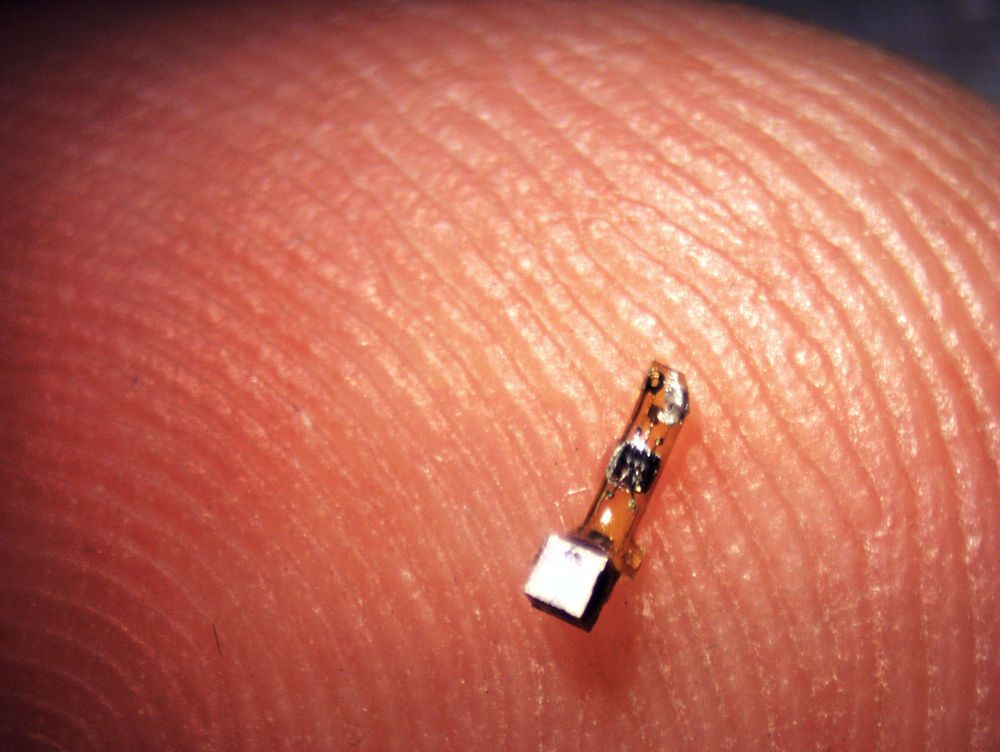
Wireless sensors that can be implanted in a person's body to control robotic devices have been developed by researchers hoping to transform brain-to-computer interfaces.
Scientists at the University of Berkeley, California, built the so-called "neural dust" device and tested its functionality in the muscles and peripheral nerves of rats.
"I think the long-term prospects for neural dust are not only within nerves and the brain, but much broader," said Michel Maharbiz, a professor of electrical engineering at the University of California, Berkeley, and one of the study's two main authors.
Maharbiz added: "Having access to in-body telemetry has never been possible because there has been no way to put something super-tiny super-deep [in the body]. But now I can take a speck of nothing and park it next to a nerve or organ, your gastrointestinal tract or a muscle, and read out the data."
Uniquely, the device does not require a battery or any external wires to operate. Instead, the sensors contain something called a piezoelectric crystal, which converts ultrasound vibrations from outside the body into electricity.
At 1 millimeter in length, the sensor is around the size of a grain of sand. However, the researchers believe that in the future it would be possible to shrink it to a 50 microns cube—half the width of a human hair. This would extend the device's functionality even further.
"The beauty is that now, the sensors are small enough to have a food application in the peripheral nervous system, for bladder control or appetite suppression, for example," said co-author Jose Carmena.
"The technology is not really there yet to get to the 50-micron target size, which we would need for the brain and central nervous system. Once it's clinically proven, however, neural dust will just replace wire electrodes. This time, once you close up the brain, you're done."
Uncommon Knowledge
Newsweek is committed to challenging conventional wisdom and finding connections in the search for common ground.
Newsweek is committed to challenging conventional wisdom and finding connections in the search for common ground.
About the writer
Anthony Cuthbertson is a staff writer at Newsweek, based in London.
Anthony's awards include Digital Writer of the Year (Online ... Read more
To read how Newsweek uses AI as a newsroom tool, Click here.








